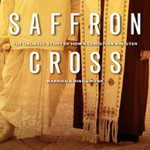 A friend and colleague recently challenged me with the question, “What is the institution of marriage, anyway?” The essential points of her critique were (1) marriage is more of an evolution than an institution, insofar as the forms of marriage vary and always have varied historically and culturally, and (2) the “institution” of marriage most cultural conservatives defend has been the basis for the oppression of women, the unmarried (single mothers especially), children born outside of wedlock, and generally anyone who does not conform to the preferred vision of domestic bliss. This post is about the nature of marriage, from a Christian perspective; the next post will be about the goodness and the import of marriage thus understood.
A friend and colleague recently challenged me with the question, “What is the institution of marriage, anyway?” The essential points of her critique were (1) marriage is more of an evolution than an institution, insofar as the forms of marriage vary and always have varied historically and culturally, and (2) the “institution” of marriage most cultural conservatives defend has been the basis for the oppression of women, the unmarried (single mothers especially), children born outside of wedlock, and generally anyone who does not conform to the preferred vision of domestic bliss. This post is about the nature of marriage, from a Christian perspective; the next post will be about the goodness and the import of marriage thus understood.
A Stradivarius is a violin made from by a member of the Stradivari family, especially Antonio Stradivari (1644-1737), out of spruce, willow, and maple, with some minerals and a varnish such as vernice bianca (gum arabic, honey, and egg white) likely used to treat the wood. The strings, of course, are made of horse hair.
On a merely material level, a Stradivarius is nothing special. Its elements are crude. Wood, egg white, and horse hair. Yet these very ordinary materials are fashioned together in extraordinary ways. If the whole violin were made of spruce, then it would not transmit sound in the way it does. The ways in which the elements merge together, the wood and the minerals and the varnish, are based in the physics of sound and materials: the density of the wood shapes the quality of the sound, the tightness of the string and the size and shape of the chamber craft its resonance, and so on. And the elements and the exquisite way in which they are grafted and crafted together, are teleological; they serve a purpose, in this case the creation of music.
In the traditional Christian view, marriage is similar in at least three respects. First, marriage is the uniting of elements that are fundamentally, naturally and beautifully different. The Christian tradition has not seen male/female differences as merely cultural constructs. While there are always cultural factors in how masculinity and femininity are expressed and valued, there are always also natural — which is to say created and ordained, purposeful and beautiful — factors distinguishing male/female and masculinity/femininity.
In fact, this view of sex and gender differences is inevitable given the Christian understanding of human nature. Unlike several Greek schools of thought, for instance, the Jewish-Christian tradition understands the body and the spirit as indissolubly united. (This is a bit of a simplification for space purposes, but correct enough as a generalization.) The Christian scriptures look forward to a bodily resurrection — and to “the redemption of our bodies” (Rom 8:23) — because we would not be ourselves, who we are, apart from our bodies. Ergo, given the bodily differences (which today we would understand to include especially hormonal and other neural differences) between the sexes, other differences are inevitable. While we do have freedom to shape our character over time, we begin with fundamental differences, and those differences are intended by God and an essential part of the mystery of God’s will for our lives. This does not mean that all women must be “feminine” as any one culture understands that term — indeed, a culture may understand the “feminine” in a false and oppressive manner, and disentangling the cultural from the natural is no easy matter — but it does mean that there are natural differences underneath, and those differences (not necessarily the cultural roles) are worth acknowledging, affirming and celebrating.
Second, in marriage the different elements of male and female unite in a complementary, creative and purposeful way. We are irreducibly relational creatures. We are all created for relationship — relationship with God, with friends and community, and in many cases with a spouse and children. Now, something important needs to be stated here: not all people are meant for marriage. The Christian tradition teaches very clearly that some are called to remain single in order to pursue the calling God has for them. The rest, however, and the vast majority, are meant to unite with a person of the opposite sex and become ‘one flesh’.
In the Christian view, then, it’s nonsense to say “I need to find myself before I get married.” It may be necessary to gain a stronger sense of what you believe and value before you make a lifelong commitment. But for those who are meant for marriage, you will not find yourself in the fullest and most meaningful sense until you find yourself married. You will not find your greatest fulfillment, your fullness, until you are made whole with another into one flesh. We tend to think of ourselves in atomic terms, as particles bouncing around in a void. Yet we’re more like a wave/particle duality; we do have qualities and boundaries unto ourselves, but we are also substantially shaped and constituted by the cloud of relationships around us. You are not you alone.
When you find a spouse, you are finding one of the greatest tools that God will ever use to shape you, and one of the great vessels of God’s grace into your life. I’m speaking here of what marriage is intended to be, and what it can be (at least in general) when two individuals are seeking and submitting to God’s will. And here’s the rub: the male will be complemented and enriched, edified and humbled, challenged and improved by the female, just as the female will by the male. Traditional Christians have long believed that this is a part of the natural order created and ordained by God; the male is meant for the female, and the female for the male, for companionship, for sanctification, for refuge, and for bringing new life into the world.
Men and women enter into a lifelong commitment both for their own sakes (so that they can be themselves and give themselves in complete security) and for the sake of any children they might have. Not all married couples have children, of course. This does not make their marriages any less valuable. But it also doesn’t change the fact (from the Christian perspective) that marriage in general is intended, among other things, to provide children with a safe, stable environment, and one in which they can learn to understand, love, and be loved by both men and women. It is, to my mind, one of the sublime mysteries of Christian doctrine that a relational (Triune), self-giving (sacrificial) Creator God invites his children through relationship and through their self-giving to participate in his constant task of creating and preserving, nurturing and maturing new life.
Third, the church traditionally has taught that the natural bond and creative complementarity of male and female is rooted in the created order. Marriage is a social contract (a covenant between two people), but it is not a social construct. Marriage is an enduring social arrangement (an institution) ordained by God, rooted in the different ways in which God has created us, and intended by God as a sacrament of his grace. We are not free to redefine marriage any more than we are free to redefine the laws of physics. We might call something else marriage, but that will not make it so.
When I look at human history, what impresses me is the remarkable continuity in what marriage has meant across time and across multiple cultures. There are variations, to be sure, including some important ones (like polygamy or concubinage), but the most important variations almost invariably served the interests of those in power. Some Christians have believed that polygamy was necessary at some times in biblical history, and may be acceptable in some circumstances (amongst jungle tribesmen, for instance) where mortality rates are high, or etc. Others believe that figures like Solomon were simply wrong and sinful in taking multiple wives and concubines. In any case, the model of marriage has been remarkably stable in the Judeo-Christian tradition for two-thousand years. Even outside that tradition, almost every culture has had something like marriage; and the greatest variation is over the issue of polygamy, but many Christians simply see (and condemn) modern polygamy as a case of men behaving badly. And for Christians, it doesn’t particularly matter whether other cultures have gotten it right, or even whether their own history represents the ideal well, but whether the institution and ideal of marriage emerges from scripture and church teaching. Falling short of the ideal is not, in itself, reason to scuttle it.
There. I’ve said about as much as I can say in a single blog post about the nature of marriage. More will be said about its nature in the next post too, when I consider whether the institution of marriage is good and worth defending in the current context. For now: Christians traditionally have seen marriage — like a Stradivarius — as the uniting of ordinary elements in such a way that their union, precise because of their fundamental and natural differences, serves for the creation of life, beauty and goodness. We are made and most of us are intended to find wholeness and fulfillment in binding the male and female together, and in their mutual self-giving to ‘create’ and protect and nurture new life.











